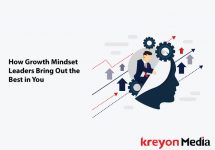
Most people fancy themselves as leaders. However, not many people are endowed with leadership ability to be effective. Leadership is a tough job, it requires you to be able to connect, inspire and produce the results that matter.
So, how to measure the effectiveness of your leadership? Are you a good leader? Jack Zenger & Joe Folkman researched this & studied over 300,000 leaders to understand the characteristics that made leaders great for their teams. Intriguingly, Zenger analysed that results-focus and people-focus weren’t the characteristics that produced great leadership on a consistent basis.
But, leaders who were able to bring about a balanced approach to focus on results as well as people were perceived great. A study by David Rock conducted on this found that this quality is found in less than 1% of all leaders. Leaders who are able to strike a balance between people and results are a rare breed, 72% of the employees perceived them as leaders.
In isolation, these characteristics often backfire, the people-focus often leads teams to be in a disarray not producing the results. The results-focus can create a cold atmosphere which is too tense and counterproductive in the long run. But a formidable and balanced approach combining the two characteristics produces great leadership.
An effective leader takes a pragmatic approach where he is concerned about people, but doesn’t lose sight of the big picture. He is driven towards the goals as well as the people driving these goals. Here’s a look at some of the characteristics that make effective leaders, according to research:
1. Leaders Deliver Feedback
In his book, ‘The One Minute Manager’, Kenneth Blanchard mentions a very systematic approach to feedback. It is actionable and fairly simple. The approach goes something like this: when a teammate reports a task to you, as a leader your job is to deliver feedback. When you want to reprimand the person, use 30 seconds to tell the person what he has done wrong & spend the next 30 seconds telling him how he can correct his mistakes.
If you want to praise a person for doing a task well, spend time praising and telling people what they did right. It takes only a minute, but goes a long way to encourage your team.
2. Set Daily Goals

The best leaders use the morning time to communicate with their teams. They spend 1 minute to discuss goals with individual members, not to get into the unnecessary details. But a high level overview of what needs to be achieved.
They ensure that their teams spend their work time effectively aligned to their goals and priorities. With the growing complexity and volume of tasks, sometimes teams are unable to prioritise. When your leader spends a quick minute, it helps you zone into the right things to start your day. The right focus requires leadership.
3. Leaders Produce Results
The job of a leader is to create results that matter the most. The best leaders in the organisation are able to achieve prolific results, much better than others in the same position. The most effective leaders are able to combine the acumen, energy and strengths of their teams to achieve astonishing results.
These leaders develop competencies that help them analyse and solve issues with their teams. They help their organisations champion changes through hard times, take ownership and responsibility to drive the results.
4. High Ethical & Moral Standards

Leaders who display high ethical and moral standards are the ones who command respect. They are able to win the confidence of their teams. While leadership effectiveness is driven by various competencies in different industries. Integrity and honesty are traits that are common across industries.
People watch their leaders and take cues from their behaviours. A person who displays a high degree of integrity and comes across as authentic establishes trust. It makes the other person more comfortable and willing to do his best.
Of all leadership competencies, high ethical and moral standards were rated as the top most competency by 67% participants.
5. Nurtures Growth & Development
The top leaders are driven by progress and development of their teams & organisations. Business leaders more than ever need to show an appetite for learning and growth. When employees feel that their managers care for their development, beyond the routine tasks, they become more productive and efficient.
The best leaders are also aware of the areas in which they need to improve. They solicit feedback and inputs from others. They help other people as well as seek help from others. The strength of the team lies in the collaborative approach where everyone is trying to help and achieve shared goals.
When leaders care for their employees, they reciprocate in kind. They push themselves to go the extra mile and help their teams. Great leaders create environments where everyone is constantly encouraging and pushing each other towards their growth. Leaders help their teams understand that by increasing their competency, skills and quality of work, they are setting themselves up for success.







